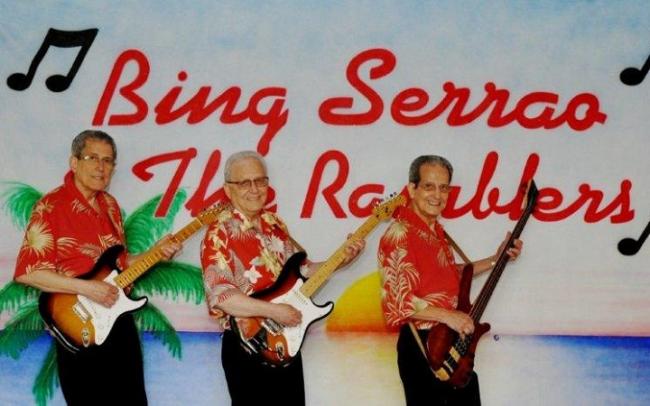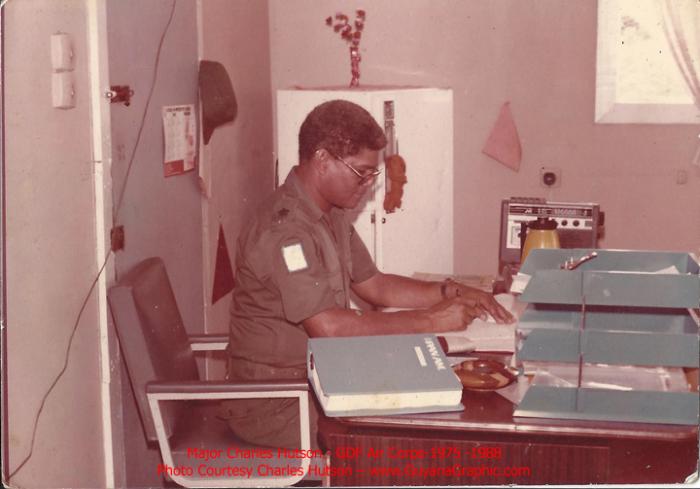By Sir Ronald Sanders
(The Author was a former General Manager and Programme Director of the Guyana Broadcasting Service, later elected member of the Executive Board of UNESCO, Antigua and Barbuda High Commissioner to London, Ambassador to the World Trade Organization, now Ambassador to the United States and the Organisation of American States, High Commissioner to Canada and Writer)
This article was published in January 2014; McAndrew died on April 2008.
Guyana has lost a great poet and a true son who, though he lived his last decades outside of his country of birth and died without again seeing his native land, remained connected to it in spirit and in inspiration. He lived in New York and New Jersey; his Muse spoke to him from Guyana.
The Tenth CARIFESTA returning to Guyana after 36 years would do well to honour him and his outstanding work. The Guyana Ministry of Culture should name the Poetry Session of the great Caribbean festival in celebration of his writings.
To have known and worked with Wordsworth McAndrew was at times an exasperating pleasure and an affectionate frustration. I am perfectly aware that these descriptions could easily fall into the category of oxymorons. But that was the character of the man. He was a remarkable contradiction: brilliant but refusing to let his light shine; capable of great achievement yet devoid of ambition. All Wordsworth ever wanted to do was to write his poetry. And he wrote it in a language and with a nuance that was uniquely his own.
His most famous work is perhaps “Ol Higue”. It has been performed countless times by numerous people, but no one could quite capture Wordsworth’s deep understanding of the folk tale. His connection to the culture of Guyana was strong – not only to the African culture which one would have assumed was his natural calling, but the East Indian culture as well. Wordsworth was capable of cross-over, long before it became fashionable in Guyanese music.
His radio programmes, first as an Information Officer with the Guyana Information Service, then the Guyana Broadcasting Service, educated a generation about rural life, Guyanese proverbs and sayings, and essentially about the culture of the ordinary people of Guyana.
He wrote much more than he published. Some of that unpublished work is nothing short of superlative. Wordsworth was in the class of Martin Carter without the Marxist undercurrent. He is less recognized not only because of his self-imposed exile from Guyana, but also because he refused to publish.
Visiting London some years ago where I was living, he stayed with me as my houseguest and he carried with him everywhere he went a much-battered knapsack. In that knapsack were his wondrous writings, much of it inspired by the Guyana he had not seen for years. I urged him to publish. He said: “In time”.
The time was not meant to be his lifetime. But, I hope that knapsack has been kept by someone. The time has come to open up that oyster so that we can all benefit from its pearls.
While he was staying with my wife, Susan, and me, he composed a poem which he signed as dedicated to us. He gave us the original which I distinctly recall placing among anthologies of West Indian poetry in my Library. We subsequently moved from the house in which Wordsworth was our guest and upon his death I went in search of the poem in our new home but, alas, I could find no trace of it.
However, I have not given up hope. I believe that one day that now precious poem will be unearthed from wherever it has been misplaced these past years. When it is discovered as I sincerely hope it will be, one day when time permits going through the Library to shake every book, I will ensure its immediate publication.
I tell now three incidents that reveal something of the complex character of Wordsworth McAndrew. He and I along with a handful of others – were selected to go to the BBC Training School in London in January 1968. We were to pursue courses in television production for a proposed national television station in Guyana. It did not come to pass, and radio remained the only source of electronic media in Guyana at the time. Therefore, we stayed on, to complete courses in radio production.
On the flight into London, I sat next to Wordsworth, who had the window seat. The plane descended into London in the early hours of the morning when the sun had not yet risen. It was a rare winter’s day – not a cloud obscured sight of the land below. Looking out of the window, Wordsworth beheld for the first time in his life the lights of a European Capital city – a multitude of streetlights, building lights, vehicle lights-twinkling against the yet darkened morning. “Fireflies”, he declared, “the lights of London are like fireflies”.
Over the many years since then, I have never landed in London without recalling Wordsworth’s poetic perception of the Capital City’s lights.
Wordsworth of course paid no regard to the vast contrast in the temperatures of England and Guyana or in the necessary difference of clothing. He arrived in England in a dashiki and sandals. We were met by a representative of the British Council who must have welcomed students from all over the world. He was unfazed by Wordsworth’s sartorial indifference to England’s biting winter, but he promptly took him to a second-hand shop to equip him with at least a winter coat and socks.
The winter coat, upon which Wordsworth was compelled to settle, was as long as it was inelegant, reaching almost to his ankles and dwarfing him within it. It mattered not to Wordsworth. Throughout that winter, he maintained his dashiki and sandals below his ill-fitting coat – that and socks being the only two concessions he made to the season.
He roomed during this period with our colleague the late Cecil Griffith, who by any measure was a man of tailored elegance and modest behaviour. One night it snowed in London for the first time that winter and Cecil Griffith was awakened by a pile of snow on his pillow and an exultant and dancing Wordsworth, who had been out carousing and had returned to his room with the snowfall.
It was a moment Wordsworth treasured – at last he could experience, touch and taste that material that was the stuff of books and poetry about which he had read from childhood. Now he knew it at first hand. It was a discovery that excited him; a connection whose reality he had only imagined until then.
Cecil related this event to our group that day with some exasperation; Wordsworth, by contrast, remained in a state of unrestrained joy.
The third incident I relate reflects the innate sense of independence and freedom of spirit that Wordsworth safeguarded throughout his life, making no allowance that would in any way compromise them in his view. Wordsworth and I never discussed personal political views or persuasions. But, I do believe that up to Guyana’s independence in 1966 and some years after, he was inclined to support the People’s National Congress under the late L.F.S. Burnham.
I provide this background for a better appreciation of the incident I now narrate. I am unsure now of the year, but it should be 1975 or 1976. The PNC Government had decided to abolish the distinguishing gender terms ‘Mr’, ‘Mrs’ and ‘Miss’ – everyone was to be addressed as ‘Comrade’. Wordsworth regarded this not only as an affront to his individuality but as an assault on his personal choice.
One evening he was the presenter on the call-in telephone programme, ‘Action Line’ which the Guyana Broadcasting Service (GBS) had launched in 1968 and was widely followed not least by politicians who were the brunt of many callers’ nightly offerings. I was the General Manager and Programme Director of GBS, and unbeknown to me Wordsworth told a caller who addressed
him as “Comrade McAndrew” not to call him “Comrade”. The first I knew of this was a telephone call from President Burnham to inform me that “McAndrew had just told a caller not to call him Comrade” and should be fired. I told the President that this was not a ground for dismissing an employee and I was not prepared to do so. I further explained that if Wordsworth chose not to be called “Comrade” that should not only be his right, but that the PNC bore some responsibility for the rejection of the term that had long been associated with the Peoples Progressive Party of then Opposition leader, Dr. Cheddi Jagan.
The President hung up the phone. I did nothing about the matter; and to his credit neither did the President. I demitted office from GBS in early 1997 to take up a post at the Caribbean Development Bank based in Barbados. I lost touch with GBS, but I was to learn that Wordsworth was fired from the radio station for once again asserting the freedom of his spirit and right of choice.
Wordsworth left Guyana for the United States thereafter and never returned. He worked as a proof-reader for a publisher in New York, though he was capable of much more. His work was precise, correct and dependable. He was not paid what he was worth. On a visit with him, I urged him to return to Guyana. He laughed and refused. He had exiled himself, not from the country, but from his strangeness to it. Yet, he could not love his country more, nor did he ever cease to draw from his memory of its font for his writing.
His friends and admirers will mourn his passing; those who do not know his work should waste no time in learning it. In his work, Wordsworth McAndrew lives on.






